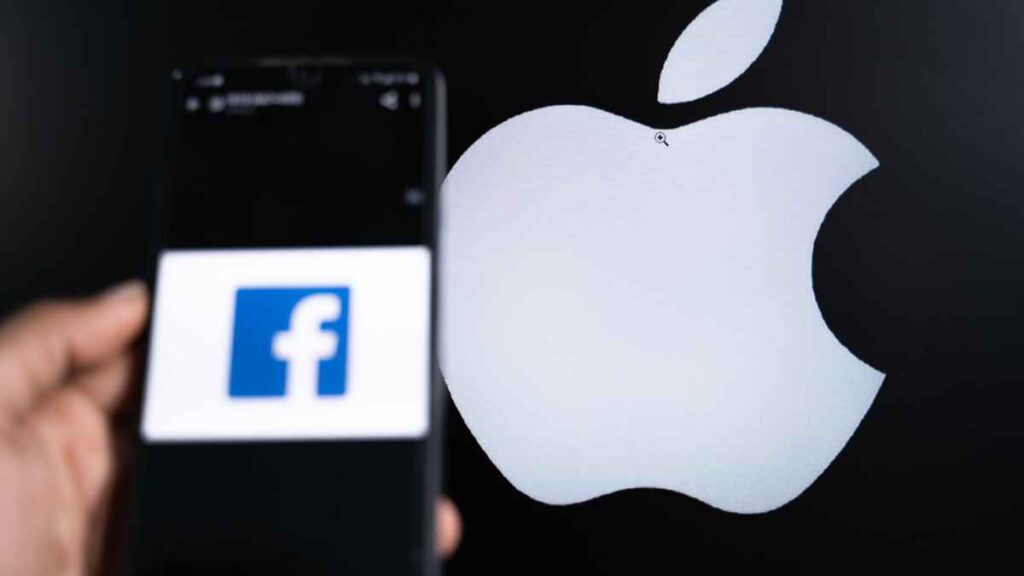Facebook’s ad revenue takes hit from Apple ATT update

Following Facebook’s financial results released on Monday, the social networking giant is anticipating a damaging effect rising from Apple’s iPhone privacy alterations led by Snap Inc’s missed revenue targets.
In April, the iOS developer incorporated additional privacy updates to prohibit advertisers from monitoring iPhone users without their permission. Apple’s move fueled fear in digital ad firms’ investors led by the reduction of data access resulting in an overturn in a mobile ad market valued at an estimation of $100 million.
Apple delivers its iOS users with the option of choosing Snapchat or Facebook, or any other platform, to trail their on-app activities through the device’s distinctive identifier for advertising. The iPhone parent’s opt outwards out app developers from constructing an idea around how users respond to ads.
Snapchat confirmed on Tuesday its worries from Apple’s privacy changes, stating it will damage its capabilities in measuring whether the Snaps platform’s ads led to website visits or sales. In addition, the measuring tool delivered by the Big Tech giant did not achieve results as Snapchat was hoping, resulting in a loss of almost a quarter of its value last week, after missing ad revenue expectations.
For that reason, Snap’s shares witnessed a damaging drop in value by 25 percent, afflicting Facebook, Google’s parent company Alphabet, and Twitter along the way. The drag on mirrored on other tech platforms since they all earn revenue by marketing digital ads.
From its stance, Facebook predicted a revenue plunge for the three months till the end of December, ranging between $31.5 billion and $34 billion, led by Apple’s privacy requirements for platforms by demanding direct permission to examine users’ behavior.
While the news did not hold a major rippling effect on the social networking titan’s ad share price – which rose by 1.3 percent after trading hours, the titan’s CEO seems to be still haunted by the latest leaked documents addressing the company’s failure to curtail misleading information and hate speech on its platform by leaning towards profit prioritization over users.
“My view is that what we are seeing is a coordinated effort to selectively use leaked documents to pay a false picture of our company. The reality is that we have an open culture, where we encourage discussion and research,” Mark Zuckerberg addressed the issue in a call with investors.

To further dive into the topic, the managing director of internet equity research at Wedbush Securities, Ygal Aronian, stated that the company has reached a point where it can no longer deny or turn a blind eye on Apple’s privacy updates in regard to other social networking platforms’ revenue outcomes.
For Facebook, this could mean that its ad revenues will most probably be affected by Apple’s privacy features to its devices, according to Evercore ISI analysts.
The social networking giant’s direct affiliation with ads generation is an undeviating representation of the firm’s intentions of prioritizing profit over users as it operates information data to generate accurate predictions to heighten sales and website visits.
Analysts believe Facebook is pursuing a $29.5 billion in revenue for its third quarter (Q3), marking a 37 percent in a fiscal year, according to IBES data from Refinitiv.
At the moment, with the rise of investigative reports concerning the giant’s way of prioritizing profit over users, Facebook is experiencing a heavy backlash from governmental representatives for its demeanor and now, with the impact Apple’s App Transparency Tracking has on the platform, the social networking mogul revealed plan to initiate a different approach towards its targeted audience.
On Tuesday, Mark Zuckerberg informed analysts that the company will change in course of action regarding advertisements by prioritizing younger users over older ones, following a reveal focusing on how the company’s popularity is diminishing among the under 30 demographics.
Facebook’s retooling of its approaches to fixate on younger demographics, in addition to indulging in its own fight with Apple’s latest privacy measures while attempting to beautify its image with the regulatory authorities could potentially hinder the firm’s approach towards optimizing its inner workings and course of actions.
